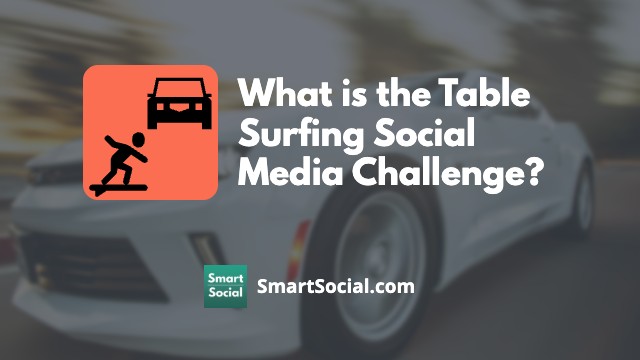What is Ransomware? A Family Safety Guide
Green Zone App
(Click here to learn more)
Dangerous Social media challenge
(Click here to learn more)
Red Zone App
(Click here to learn more)
Gray Zone App
(Click here to learn more)
Most ransomware is disguised as a valid file to be downloaded or opened in an email. So, what is ransomware? Ransomware is a type of malicious software that holds your personal digital data for ransom. Those affected by ransomware cannot gain access to their personal data without paying a fine.
What is Ransomware?
- You’re probably thinking... “No one wants to get into my computer, I have nothing to steal, I’m not rich or famous”
- However, you have 100-2,000 friends in your email contacts who might trust you, and ransomware can email them (on your behalf) to infect their computer
- Typically, people whose data has been seized by ransomware are threatened to have their data leaked or are blocked from accessing their data
- Most ransomware is disguised as a valid file to be downloaded or opened in an email
Why should you care?
- Once ransomware has been launched there is little you can do unless you have a backup or security software in place already
- If you pay to get your data back, there is no guarantee that you will gain access to your data
What to do if you become a ransomware victim
- Do not pay the ransom fine
- If you think you may have ransomware running on your device, disconnect it from the internet immediately to prevent it from spreading
- Try using a decryption tool from Kaspersky Lab and Macafee to recover your data
How to prevent becoming a victim of ransomware
According to Kaspersky Lab and Macafee these are the steps you should take to protect your kids:
- Backup your computer so that if someone takes your data ransom they can delete it and you still have access to it
- Keep your software up to date (Windows, Mac, Android and iOS)
- Use antivirus software
- Never trust links or downloads from anyone you don’t know
- Buy an external hard drive and back it up once a month then disconnect it once the backup is complete so ransomware can’t access your data
What backup software should I use?
The best antivirus software for Macs & PCs
- McAfee AntiVirus Plus
- Kaspersky Anti-Virus
- Symantec Norton AntiVirus Basic
- Bitdefender Antivirus Plus
- Avast Pro Antivirus
- Malwarebytes (Free)
- AVG AntiVirus Free
How to protect grandparents from risky links/emails
- Teach them to never open or download/click links in emails from people they don’t know
- Offer to setup a backup system for their computer
- Remind them to regularly update their operating system software
- Get them on Gmail/Google apps if possible
Protect your family and enter for a chance to win cool prizes
Become a member or log in to learn more on this topic
Protect your family and enter for a chance to win cool prizes

., start learning from this page to earn points!*
Hello, I'm Josh, the founder of SmartSocial.com.
Don't leave this page until you fill out our feedback form that will appear after you learn from the resources...
Here are some of the latest resources at SmartSocial.com
Become a Very Informed Parent (VIP) to get our social media suggestions in your email every Tuesday & Thursday.



Hello, I'm Josh, the founder of SmartSocial.com. Protect your family by taking my 1 minute quiz
This quiz will help you understand how safe your family is


Schools & Districts: Partner with us to protect your community online
Our remote presentations (and website) teach over a million parents and students each year how to be safe so they can shine online. We teach students how their accounts can be used to create a portfolio of positive accomplishments that impress colleges and employers.


Join Our Smart Social Podcast
each week on iTunes
With over 500 episodes, Josh Ochs interviews psychologists, therapists, counselors, teachers, and parents while showing you how to navigate social media to someday shine online.
Listen on:



.jpg)
.jpg)
.jpg)


